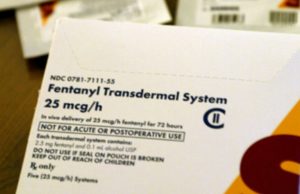October 20th, 2020
Source: Positive Tests for Fentanyl, Heroin, Opioids Climb During Pandemic
The study, which was published by the journal Population Health Management, included analysis of more than 872,000 de-identified lab results from all 50 states and Washington, D.C., with tests divided into two ranges of dates: pre-pandemic (Jan. 1, 2019, to March 14, 2020) and early pandemic (March 15 to May 16). Positive test rates increased by 35% for non-prescribed fentanyl, 44% for heroin and 10% for non-prescribed opioids. Meanwhile, positivity for non-prescribed gabapentin and benzodiazepines each declined, by 21% and 4% respectively. No significant changes were observed in positive test rates for cocaine, amphetamines, oxycodone or tramadol.
Quest Findings
Also of note, Quest researchers’ findings suggest a significant increase in non-prescribed use of fentanyl in combination with other illicit substances during the pandemic. Positivity for non-prescribed fentanyl increased by:
- 89% among patients who tested positive for amphetamines
- 48% for benzodiazepines
- 39% for opioids
- 34% for cocaine
- 4% for heroin
Men were found to be at a greater risk of illicit fentanyl use, with a 51% increase observed during the pandemic vs. a 16% increase in positive tests among female patients.
Beyond social factors that can trigger illicit drug use—increased isolation and a rise in stress, job losses and depression—Quest researchers suggested that the CDC’s recommendation that health systems delay elective care at the outset of the pandemic may have played a role in their findings.
“Although necessary to help mitigate the spread of the pandemic, these orders appear to have led to one of the most dramatic changes brought on by the convergence of the drug epidemic and the COVID-19 pandemic—the temporary discontinuation of testing for drug and alcohol misuse,” the researchers wrote. “The result is that many clinicians continue to prescribe controlled substances without drug testing and are therefore ‘flying blind,’ lacking objective evidence to assess their patients for potential drug misuse.”



Comments are closed.